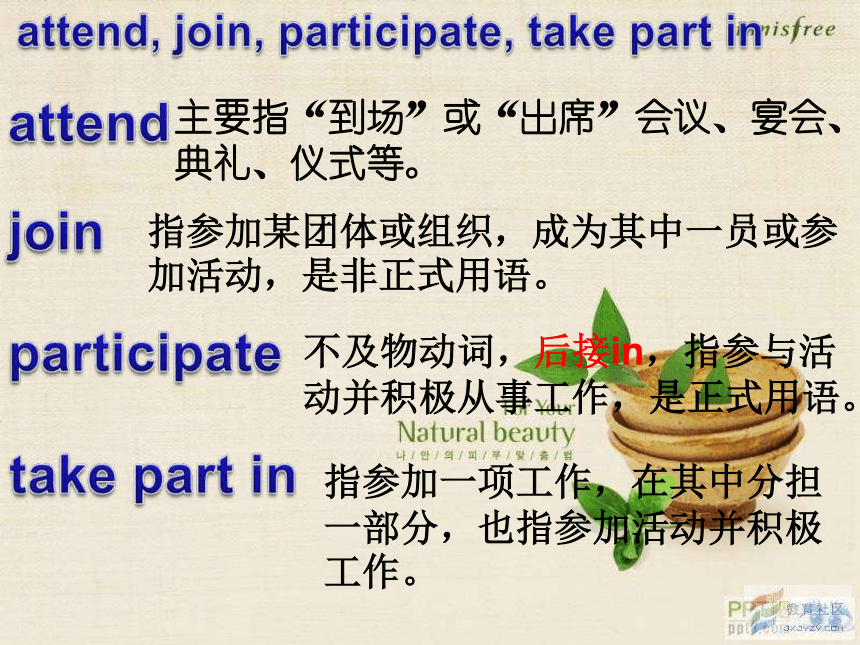Unit 3 Back to the past reading2课件
文档属性
| 名称 | Unit 3 Back to the past reading2课件 |  | |
| 格式 | zip | ||
| 文件大小 | 1.5MB | ||
| 资源类型 | 教案 | ||
| 版本资源 | 牛津译林版 | ||
| 科目 | 英语 | ||
| 更新时间 | 2014-05-04 10:34:38 | ||
图片预览









文档简介
课件21张PPT。---- By Caroline电脑模拟维苏威火山喷发埋葬庞贝古城画面(1) to have done (原因状语) 表示不定式的动作发生在谓语动作之前。 不定式做原因状语通常用来修饰表示情感、心理状态等的形容词。常见的此类形容词有:happy, delighted, lucky, fortunate, surprised, angry, anxious, sorry, eager等。1. I feel lucky to have won a place on this trip.eg:
I am sorry to have kept you waiting so long.
We are greatly delighted to have a native as our guide. beat 与 win 的区别:
beat 充当beat的宾语的是比赛、竞争的对手,即指人或球队的名词或代词。
win 充当win的宾语的是比赛、战争、奖品、金钱等名词,即race, match, game, competition, war, prize之类的词。 1. We were astonished the temple still in its original condition.
finding B. to find C. find D. to be found
2. Our football team theirs last Saturday, but they the game yesterday afternoon.
A. beat; beat B. beat; won C. won; won D. won; beat 2. Next week we are flying to China, and going to Loulan, which is known as China’s Pompeii in the desert.
(1) 现在进行时表示将来的动作。表示按计划或安排将要发生的动作,这一用法仅限于go, come, leave, take, start, take off等趋向性动词。
eg:
Mother is taking us home to see my grandma on Sunday. Ladies and gentlemen, please fasten your seat belts. The plane .
A. takes off B. is taking off
C. has taken off D. took off (2) be known as… 作为……而出名,被公认为……
eg: She is known as a writer.
Wang Guozhen is known a poet and famous his poem.
A. as;for B. for; as C. as; as D. for; for 3. This morning we attended a lecture about Pompeii.
attend 参加
attend on/up on 照料;照顾;服侍;陪伴
attend to 处理;注意;照看主要指“到场”或“出席”会议、宴会、典礼、仪式等。指参加某团体或组织,成为其中一员或参加活动,是非正式用语。不及物动词,后接in,指参与活动并积极从事工作,是正式用语。指参加一项工作,在其中分担一部分,也指参加活动并积极工作。eg: Mary joined a church yesterday.
He never attended a funeral.
I’ll try to follow your advice about participating in students’ activities.
I’m not going to take part in arguments.
He did the lecture this morning, but somehow he did not seem to attend to it.
A. attend B. take part in C. join D. participate lecture 讲座,演讲
Deliver/give a lecture to sb. on/about sth.给某人做一个关于……的讲课(演讲)4. The city was founded in the 8th century BC.
found 在句中是实义动词,“兴建,创建”之意。同义词:set up, establish。
还有“建设,创作,树立”的意思,常用于“found…on/upon… 建设在……基础上;be founded on… 根据……创作、建设”
eg: His theory is founded on facts.
Their friendship was founded on mutual respect.The Chinese Communist Party on July 1, 1921.
A. Was found B. was founded C. found D. founded 5. In 89 BC, the Romans took over Pompeii.
take over 控制,管理(国家,政党等);接收,接管(公司等)
eg: Who will take over the company when you retire?
take away 拿走
take down 取下来,拆除,记下
take out 拿出
take off 脱下,(飞机)起飞 (1) Mary always help her mother even though going to school most of her day.
takes over B. makes up C. saves up D. puts up
(2) Some insects the colour of their surroundings to protect themselves.
A. take in B. take off C. take on D. take out6. On 24 August AD 79, the volcano erupted and lava, ash and rocks poured out of it onto the surrounding countryside.
pour in/into 涌进
pour out (of) (从……)涌出
pour out 倾诉
pour cold water on 向….泼冷水,使扫兴
pour oil on the flames 火上浇油
She met her best friend on the street and all her troubles to him.
poured into B. poured out
C. talked into D. talked out 9. People started to dig in the area for treasure, which caused much damage.
Which 引导非限制性定语从句,代指前边整个主句的意思,在从句中做主语,相当于and this或and that;as也由此用法。
(1) He said he had lost his bicycle, was untrue.
A. which B. that C. in which D. which of
(2) Ted came for the weekend wearing only some shorts and a T-shirt, is a stupid thing to do in such weather.
A. this B. that C. what D. which flee & escape 逃跑
flee: 因害怕会有危险而逃离某地
escape: 从不愉快、监禁或危险的处境中逃脱,重在结果imagine doing sth.
I can’t imagine lying like that. I would go crazy. imagine + wh-to+动词原形.
I cannot imagine what to do in this dreadful situation. imagine + (that-) clause.
Can you imagine that you are in a spaceship to the moon? imagine wh-clause.
I cannot imagine what life on the moon would be like. imagine + n./pron. + (to be/as) n./adj.
She imagines everything to be easy. imagine + n./pron. + v.-ing /v.-ed .
Can you imagine him becoming a famous singer? I can’t imagine without electricity.
A. living B. to live C. that living D. live ruin 指把某件东西损害到不能再修理或使用的程度,现在多用于借喻中。 destroy:十分彻底的破坏
damage:并不彻底……destroy:不能或很难修复
damage: 不能发挥正常作用destroy: 接物&人
damage:只用于无生命 destroy: 不可抵抗的外界力量
damage: 人的过失Your plans for a party will be ruined if you get sick.
Moths ruined good woolen clothes by eating holes in them.
Many lives were destroyed by the earthquake.
This lock is damaged. This door will never open!Wealthy adj. 富有的,富裕的,富饶的
a wealth of 许多的,大量的
be wealthy in 在某一方面富有
the wealthy 富人;有钱人together with 连同;和
He sent me the book, together with a letter.involve 指的事物往往是抽象的
include 抽象&具体involve 可详细罗列内容&只列举其中一二
include 没有此用法involve 必然包括某种结果
include 包括属于整体的部分include 主语与谓语属于同一范畴
contain 主语相当于一个“容器” cut down 把……砍倒;减少,降低;裁短,改小
cut out 剪下,删除; cut across抄近路;穿过;
cut in 插嘴,打断; cut off 剪(切,砍)下result in 导致,致使(后+结果作宾语)
eg:Their dispute resulted in war.
as a result (of) 作为(……的)结果
in result 结果;引起(结果)
without result 毫无结果地
Because of his hard work, he obtained good results.
The farm was flooded with the result that most of the harvest was lost.
result from 起因于,由于(+原因)
Success results from hard work.成功源于努力。
Hard work results in success. 努力终归成功。1. Retell the article.
I am sorry to have kept you waiting so long.
We are greatly delighted to have a native as our guide. beat 与 win 的区别:
beat 充当beat的宾语的是比赛、竞争的对手,即指人或球队的名词或代词。
win 充当win的宾语的是比赛、战争、奖品、金钱等名词,即race, match, game, competition, war, prize之类的词。 1. We were astonished the temple still in its original condition.
finding B. to find C. find D. to be found
2. Our football team theirs last Saturday, but they the game yesterday afternoon.
A. beat; beat B. beat; won C. won; won D. won; beat 2. Next week we are flying to China, and going to Loulan, which is known as China’s Pompeii in the desert.
(1) 现在进行时表示将来的动作。表示按计划或安排将要发生的动作,这一用法仅限于go, come, leave, take, start, take off等趋向性动词。
eg:
Mother is taking us home to see my grandma on Sunday. Ladies and gentlemen, please fasten your seat belts. The plane .
A. takes off B. is taking off
C. has taken off D. took off (2) be known as… 作为……而出名,被公认为……
eg: She is known as a writer.
Wang Guozhen is known a poet and famous his poem.
A. as;for B. for; as C. as; as D. for; for 3. This morning we attended a lecture about Pompeii.
attend 参加
attend on/up on 照料;照顾;服侍;陪伴
attend to 处理;注意;照看主要指“到场”或“出席”会议、宴会、典礼、仪式等。指参加某团体或组织,成为其中一员或参加活动,是非正式用语。不及物动词,后接in,指参与活动并积极从事工作,是正式用语。指参加一项工作,在其中分担一部分,也指参加活动并积极工作。eg: Mary joined a church yesterday.
He never attended a funeral.
I’ll try to follow your advice about participating in students’ activities.
I’m not going to take part in arguments.
He did the lecture this morning, but somehow he did not seem to attend to it.
A. attend B. take part in C. join D. participate lecture 讲座,演讲
Deliver/give a lecture to sb. on/about sth.给某人做一个关于……的讲课(演讲)4. The city was founded in the 8th century BC.
found 在句中是实义动词,“兴建,创建”之意。同义词:set up, establish。
还有“建设,创作,树立”的意思,常用于“found…on/upon… 建设在……基础上;be founded on… 根据……创作、建设”
eg: His theory is founded on facts.
Their friendship was founded on mutual respect.The Chinese Communist Party on July 1, 1921.
A. Was found B. was founded C. found D. founded 5. In 89 BC, the Romans took over Pompeii.
take over 控制,管理(国家,政党等);接收,接管(公司等)
eg: Who will take over the company when you retire?
take away 拿走
take down 取下来,拆除,记下
take out 拿出
take off 脱下,(飞机)起飞 (1) Mary always help her mother even though going to school most of her day.
takes over B. makes up C. saves up D. puts up
(2) Some insects the colour of their surroundings to protect themselves.
A. take in B. take off C. take on D. take out6. On 24 August AD 79, the volcano erupted and lava, ash and rocks poured out of it onto the surrounding countryside.
pour in/into 涌进
pour out (of) (从……)涌出
pour out 倾诉
pour cold water on 向….泼冷水,使扫兴
pour oil on the flames 火上浇油
She met her best friend on the street and all her troubles to him.
poured into B. poured out
C. talked into D. talked out 9. People started to dig in the area for treasure, which caused much damage.
Which 引导非限制性定语从句,代指前边整个主句的意思,在从句中做主语,相当于and this或and that;as也由此用法。
(1) He said he had lost his bicycle, was untrue.
A. which B. that C. in which D. which of
(2) Ted came for the weekend wearing only some shorts and a T-shirt, is a stupid thing to do in such weather.
A. this B. that C. what D. which flee & escape 逃跑
flee: 因害怕会有危险而逃离某地
escape: 从不愉快、监禁或危险的处境中逃脱,重在结果imagine doing sth.
I can’t imagine lying like that. I would go crazy. imagine + wh-to+动词原形.
I cannot imagine what to do in this dreadful situation. imagine + (that-) clause.
Can you imagine that you are in a spaceship to the moon? imagine wh-clause.
I cannot imagine what life on the moon would be like. imagine + n./pron. + (to be/as) n./adj.
She imagines everything to be easy. imagine + n./pron. + v.-ing /v.-ed .
Can you imagine him becoming a famous singer? I can’t imagine without electricity.
A. living B. to live C. that living D. live ruin 指把某件东西损害到不能再修理或使用的程度,现在多用于借喻中。 destroy:十分彻底的破坏
damage:并不彻底……destroy:不能或很难修复
damage: 不能发挥正常作用destroy: 接物&人
damage:只用于无生命 destroy: 不可抵抗的外界力量
damage: 人的过失Your plans for a party will be ruined if you get sick.
Moths ruined good woolen clothes by eating holes in them.
Many lives were destroyed by the earthquake.
This lock is damaged. This door will never open!Wealthy adj. 富有的,富裕的,富饶的
a wealth of 许多的,大量的
be wealthy in 在某一方面富有
the wealthy 富人;有钱人together with 连同;和
He sent me the book, together with a letter.involve 指的事物往往是抽象的
include 抽象&具体involve 可详细罗列内容&只列举其中一二
include 没有此用法involve 必然包括某种结果
include 包括属于整体的部分include 主语与谓语属于同一范畴
contain 主语相当于一个“容器” cut down 把……砍倒;减少,降低;裁短,改小
cut out 剪下,删除; cut across抄近路;穿过;
cut in 插嘴,打断; cut off 剪(切,砍)下result in 导致,致使(后+结果作宾语)
eg:Their dispute resulted in war.
as a result (of) 作为(……的)结果
in result 结果;引起(结果)
without result 毫无结果地
Because of his hard work, he obtained good results.
The farm was flooded with the result that most of the harvest was lost.
result from 起因于,由于(+原因)
Success results from hard work.成功源于努力。
Hard work results in success. 努力终归成功。1. Retell the article.
